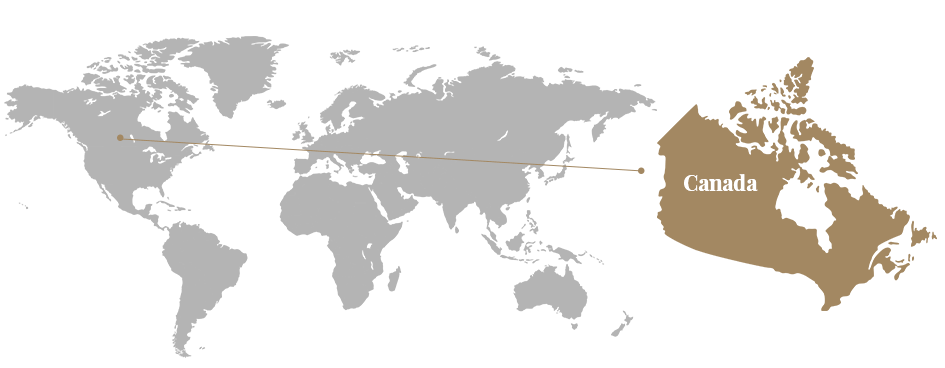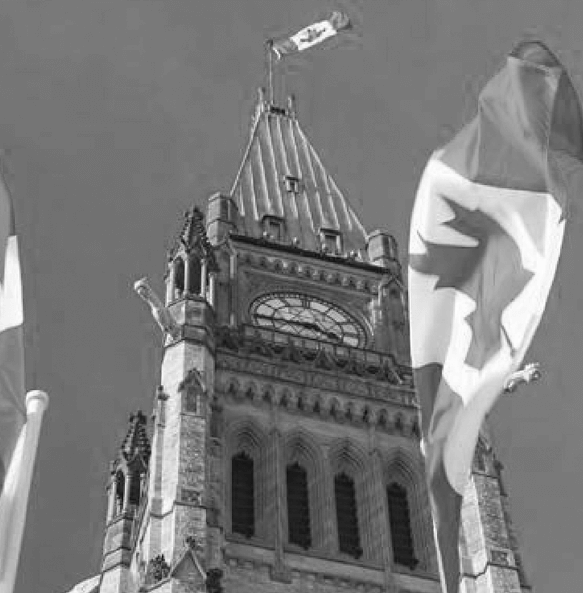Canada’s Start-up Visa Program targets immigrant entrepreneurs with the skills and potential to build businesses in Canada that, are innovative, can create jobs for Canadians and are capable to compete on a global scale.
This is a Permanent Resident program, whereby applicants will be issued PR to come to Canada, incorporate a company, and work on a start up concept in conjunction with a Canadian government approved incubator.
To apply for the Start-up Visa Program, your business idea or venture must get the support of one or more of the designated organizations listed below:
The Canadian Start-up Visa Program was launched in 2013. It is designed for entrepreneurs with the skills and potential to build businesses in Canada that are innovative, can create jobs for Canadians, and can compete on a global scale. The Program aims to connect these entrepreneurs with organizations in Canada that can assist them in realizing their project

At this stage, we collect all of the information required to assess the candidate’s eligibility for the SUV Program. Using our customized and confidential client intake sheet, we will need information related to the candidate’s background, language skills, personal assets and business and employment history.We also ask for a description of the innovative Start-Up idea. At this stage, the idea may still be in its preliminary stages. Our team will review the idea, make suggestions and modifications, and re-work the idea with the Canadian context in mind.

With a team of professionals, we confirm and develop the entrepreneur’s business concept. At this stage, we get a clearer view of the innovation, marketing, production, job creation and financial dimensions of the project. We then send a preliminary version of the business plan for approval.
A Federal Corporation is created under the Canada Business Corporations Act. A Canadian lawyer will be appointed to the board of directors of the newly created company – not only satisfying Canadian law that 25% of the board be comprised of Canadian residents, but also providing guidance, administration and management support to the company, and providing confidence in the eyes of local partners and the Business Incubator.

At this stage, the entrepreneur’s project idea will be fully developed, and a thorough business plan will be prepared. The business plan is presented to the Business Incubator for approval. Once submitted, the Business Incubator may require additional information, or may suggest modifications, and may wish to communicate with the entrepreneur(s) to discuss the project. Our team will ensure that the entrepreneur is ready and prepared for those discussions.
Upon the acceptance of the project, the Business Incubator issues a Letter of Support to each entrepreneur
Elements of the Business Plan
A business plan is a blueprint of how a company will be run. Good business plans are usually highly detailed and include information on all aspects of the business, including the industry, marketing, finance, personnel and various operating procedures:
Executive Summary – a brief description of the project, the financing required, and additional information that help explain the business plan
Business Overview – major demographic, economic, social and cultural factors, major players, trends in the industry, government regulations, market segment, products & services, pricing and distribution, market trends, implications or risk factors
The Competition – competitors and type of competition, competitors’ strengths and weaknesses, competitive advantage
Sales & Marketing Plan – customers, suppliers, advertising & promotion, pricing & distribution, customer service
Operating Plan, Human Resource Plan, Action Plan and Timetable
Financial Plan – the projected company’s financial performance, including: sales, cost of goods, sold expenses, income statement, balance sheet, cash flow budget, financial requirements, key performance indicators

Our team will prepare the entrepreneur’s application for permanent residence. At this stage application forms need to be completed, and supporting documents need to be gathered, including:
Biometric information may be required by IRCC from the entrepreneur(s) and accompanying family members. A medical examination is also necessary prior to the issuance of a permanent resident visa or confirmation of permanent residence.
At the time of applying, the applicant must submit official test results from a designated language testing agency (IELTS, CELPIP, TEF-Canada or TCFCanada) demonstrating a minimum CLB 5 in listening, reading, writing and speaking. These results must be less than 2 years old at the time of submission.
The applicant and any family members 18 years of age and older must provide police clearance certificates from each country where they have lived for 6 months or more, since the age of 18.
The applicant and family will be requested to attend a medical examination. The examination is required to ensure no member of the family’s health poses a danger to Canada’s public health or safety, or could cause too great a demand on health or social services in Canada

The entrepreneur must demonstrate that efforts to develop the business plan have been made and concrete actions to set-up the business are taken. This is the time when the initial steps of the operating plan will be executed. The company’s bank account will be opened, marketing and branding initiatives will start, and its website will be developed. In some cases, the business will hire employees, develop partnerships, gain strategic resources and make strides towards business development. This is done in parallel with Stage 4.
At this stage, an investment in the Start-Up is necessary. The amount of investment required at this stage, will vary depending on the entrepreneur’s project. You should expect that the entrepreneur will be required to invest at least CAD 100,000 to ensure the company has sufficient liquidity during its start up phase.
Temporary Work Permit
Although not required, entrepreneurs are eligible to apply for a work permit while waiting for their permanent residence application to be processed. This allows the entrepreneur(s) to begin the Business Incubator’s program, which usually consists of meetings to better guide the launch of the Start-Up on a period of six months. We assist, guide and represent the entrepreneur(s) in the application for a work visa. If getting a work visa to start the incubation program is not feasible before the permanent residence is granted, the entrepreneur(s) can join the incubation program after receiving permanent residence.

Upon positive assessment of the entrepreneur’s application, permanent resident status will be granted to the entrepreneur and his accompanying family members, by the Ministry of Immigration, Refugees & Citizenship Canada.
As the entrepreneur will now be a permanent resident, the appointed Director will resign from the Board of Directors of the Start-up. The entrepreneur will continue to manage his business in Canada and be the principal driver behind its growth and success, including ensuring the business is sufficiently capitalized to ensure its success. Additional investment from the Entrepreneur may be required.






A qualifying business means you created a business that meets the following conditions. At the time you get a commitment from a designated organization:
At the time you receive your permanent residence:
You must score a minimum of Canadian Language Benchmark level 5 in speaking, reading, listening and writing in either English or French.
As the government of Canada does not give financial support to this “investor” visa, you will have to be able to prove that you have enough money to settle you and your family in Canada.
Seed Stage and Eligibility Assessment 
Preliminary Business Plan and Company Formation 
Completion of Business Plan and Letter of Support 
Prepare and Submit the Application for Permanent Residence 
Launch of the Start-up and Incubation 
Permanent Residence 
Yes. The Program is designed for entrepreneurs with the skills and abilities to start a business in Canada.
Yes. You must provide active and ongoing management of this business from within Canada.
If your business fails, it doesn’t affect your permanent resident status. IRCC recognizes that not every business will succeed and the SUV Program is designed so that the risk is shared between the public and private sector.
To get support from a VC Fund or angel group, you need to secure a minimum investment of CAD200,000 or CAD75,000 respectively from them. A business incubator on the other hand won’t invest any funds, but will agree to support your project and accept you into their business incubation program.
Yes – up to 5 people can apply through the SUV Program as owners of a single business. When reviewing your proposal, the business incubator will decide who is and who isn’t essential to the business. If IRCC refuses the application of any of the entrepreneurs, for any reason, all related applicants will be refused.
First, the Business Incubator that you are seeking support from will review the viability of your business proposal. Next, the Department of Immigration, Refugees & Citizenship Canada will review your immigration application to make sure you have received the necessary support to apply and to make sure you’re eligible and admissible to become a permanent resident.
In some cases, your application may also be subject to a an independent peer review process. The peer review process ensures that your activities and those of the Business Incubator are in line with industry standards.
There is no requirement that the applicant have prior management experience. In assessing your application, the designated organization will assess the viability of the business under your management. Plenty of entrepreneurs never had previous management experience before launching their first start-up business, and went on to create very successful businesses.
There is no minimum amount. The amount you’ll need to personally invest in your business will vary based on the type of business. We expect that at a minimum, a business will require an initial investment of at least CAD$100,000 to launch, and become operational. There are some initial expenses at the launch of a business, and you want to be sure that the company is well-funded from the beginning. But in most cases additional investment will be required from the entrepreneur.
You will be free to establish in any Province, other than the Province of Quebec. There are designated organizations across the country, who can support you regardless of where you choose to settle with your family and establish your business.
Obtaining the letter of support is a critical and required step to applying for the SUV Program, but alone doesn’t guarantee that you will be approved. IRCC will review each application and ensure that you meet the eligibility and admissibility criteria, that you have sufficient funds to support yourself and your family when you arrive in Canada, and that you have passed a medical examination and security clearance checks.
CBIS is specializes in creating, managing and promoting programs and products geared towards international investors around the world. Its industry-leading team actively works with governments, business communities, lawyers and its extensive network of authorized representatives to bring programs and products to market and to ensure its applicants experience a successful endeavor.
We will assist you through the entire business start up and permanent residence application processes.